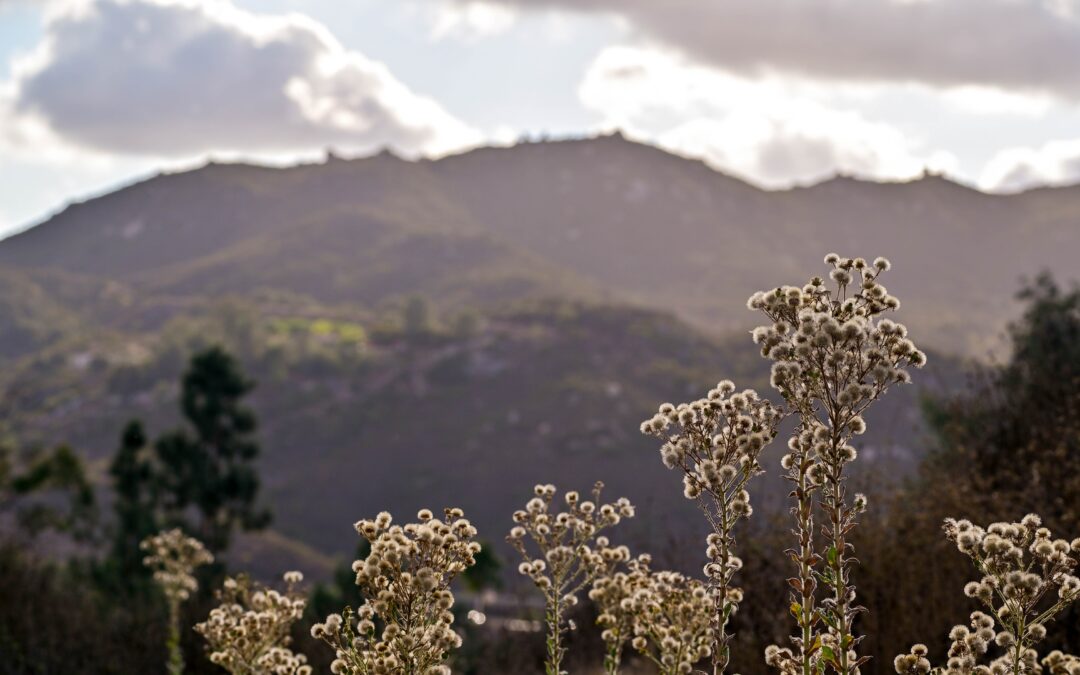How would you feel about going sock-less for a week when you hadn’t planned your wardrobe for that situation?
In July I attended the Forum of Regional Associations of Grantmakers’ annual conference in San Diego, representing Associated Grant Makers, an association of over 120 foundations and grantmaking organizations and over 625 nonprofit organizations serving Massachusetts and the surrounding region. (AGM is one of the RAs in The Forum Network, the largest philanthropic network in the U.S. with 34 regional grantmaking associations and more than 5500 participating foundations, funders, nonprofits and other philanthropic affiliates.) The week started in Encinitas, about 25 miles north of San Diego, for a board dinner and meeting. It was here that when I got to my hotel room I learned that I forgot to pack socks.
I went into a slight panic – not wanting to wear the one pair of white gym socks I had worn on the plane for the rest of the week – gym socks/dress pants/dress shoes, not the most attractive combo. Being in Encinitas, I was sure to find socks for purchase. I did what every self-respecting East Coaster would do (if you were a native Californian, I supposed you’d just not wear socks), I Yelp-ed clothing stores, called the only open one (it was a Sunday evening!) to ensure they had socks, and walked the half-mile under the SoCal sun to my destination. To my (horror) disappointment, the selection was rather, uh, Californian. By this, I mean organic black peds – those half-sock like things that don’t cover your ankles. Organic, meaning, I think they would biodegrade after a few hours against my rather large Mediterranean feet. I bought two pairs. What else was I going to do? (A fellow board member offered to knit me a pair having brought yarn and needles, but I thought that wasn’t practical.)
Socks in hand (er, foot), I turned my attention to the conference. I was eager and excited to reconnect with my fellow RA colleagues to have the opportunity to learn from their leadership and from others in the field. Perhaps the most inspiring session was hearing from John Kobara, the COO of the California Community Foundation. His 90-minute plenary was part history of associations, part lesson on evolution of philanthropy, part strategy for strengthening our work.
In addition to his pointing to the current philanthropic landscape as more than just foundations and traditional grantmakers (the growth of population-focused and donor advised funds, transfer of wealth, new diverse donors, entrepreneurs and new social enterprises) as well thoughts on relationship-building, Kobara confronted us to challenge our orthodoxies. In grantmaking, this might mean giving greater consideration to the perspective of the grantee.
(How would you think differently about your priorities and what fits within that scope? Do you allow for streamlining, changes to the timeline, a quicker turnaround time for decision-making? Maybe it is about who you are willing to work with to achieve your goals?)
For a regional association of grantmakers, we need to consider this evolved constituency as a broader pool of players with whom we should be connecting. Are we truly serving the sector if we are not opening our doors to these different types of philanthropy? Inviting them to the table, but also learning from them about strategies for giving?
At AGM’s annual meeting in June, Jim Canales, the new president and trustee at the Barr Foundation, delivered a thoughtful address to the over 120 philanthropic leaders from New England touching on a similar theme, challenging us to change our “default settings”. (Subsequently, he shared this presentation with The Chronicle of Philanthropy in a July 2014 article). Canales emphasized moving from “I” to “We” and moving from models and metrics to adaptation and learning.
Additional speakers at the AGM meeting included Kirstan Barnett from SheGives, a new dynamic collaborative of smart women donors giving strategically but also personally, and David Brown, from Technology Underwriting for Greater Good (TUGG) which is engaging Boston-area entrepreneurs and technologists (many under-40), leveraging them to identify and fund new social enterprises. Both SheGives and TUGG are challenging the status quo of philanthropy – or pushing the boundaries of the sector.
John Kobara, in speaking about the evolution of philanthropy, cited the movement from sectoral to collective solutions. Will traditional philanthropy see the value in aligning, partnering or working in concert with these newer players – ones that by composition are working collectively themselves? Steve Rowe, the new CEO at the Endowment for Health in New Hampshire, noted in his remarks at the AGM meeting that we need to “look through the windshield not the rear view mirror,” and in their view, this means looking at their work through “a field-building lens,” working collectively for solutions to the region’s health issues. The option to go it alone seems like setting oneself up for failure, rather than positioning oneself for the best chances for impact and success.
While in San Diego, I began to question my own orthodoxies, and how I might apply what I heard from my colleagues at the AGM annual meeting and at the Forum. Yes, I wore the black peds (showing a bit more ankle than I wanted). But when I had the chance to buy socks (finally on day 4 of my trip!), I purposely bought ones that would make a statement (red, black, gray and white stripes!). At AGM we have already begun to embrace change and work collectively. Our membership is beginning to broaden beyond traditional philanthropy, and we work with a number of donor collaboratives and affinity organizations. But we have much to learn and adapt to. I’m not quite there yet, as I couldn’t go without socks – but I’m working on it. Are you questioning your own orthodoxies? Are you ready to walk in shoes without socks?
Jeff Poulos is executive director of Associated Grant Makers, the only regional association of grant makers serving in, or making grants in Massachusetts and surrounding areas.


